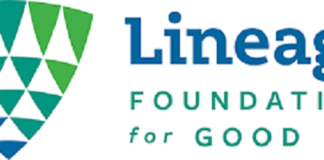
Food processing leaders are facing an increase in food safety claims in the wake of what has been a difficult year for the industry, according to Lathrop GPM’s Food Processing Trends, Outlook and Guidance Report. The findings also revealed that although most food processors are confident in their food safety standards, many will need to address critical gaps in their ability to respond to increased food safety claims.
They survey, which was conducted in February 2021 and canvassed 100 decision makers in agribusiness residing in 36 U.S. states., revealed that many food processors find themselves facing an uncertain future. Slightly more than half (53%) said they presume to return to pre-pandemic operation. 60% believe food safety claims have increased since the beginning of the pandemic, with 65% expecting food safety claims to rise in the next year. At the same time, only 34% of respondents say they are very prepared to manage an increase in food safety-related claims. Contributing factors to this concern include foodborne illnesses, contaminants, and shifting food production and technology.
Some gaps exist in preparation for this rise in claims:
- Only slightly more than half (57%) review their insurance policies annually
- Less than half (43%) claim to have internal risk management teams to handle insurance concerns, even though the majority (71%) are confident they have adequate insurance coverage
- Less than half (47%) of respondents are consulting with outside counsel about their business processes
Some (23%) food processors said they use insurance brokers for advice instead of outside counsel. This could be problematic as an insurance broker’s revenue source lies with the insurer as opposed to the insured. And while 37% of food processors have sought outside counsel to challenge denied insurance claims, the majority aren’t looking to this resource for issues such as insurance claim resolution and food safety matters. According to the survey results, this lack of investment in such issues as internal risk management and engaging outside council in response to potential food safety risks points to a reactive stance as opposed to a proactive one.
Contaminants remain a top concern for respondents, including materials such as PFAS. Most respondents (90%) believe contaminant-related risks are an important factor for business. However, just one-third consult outside counsel about such risks. According to Mara Cohara, partner and leader of the Environmental and Tort Practice Group at Lathrop GPM, PFAS has been used in products such as stain-resistant fabrics and nonstick cookware for decades. She believes that PFAS will be a focus for regulators in the coming year, resulting in increased litigation. This could be another compelling reason for food processors to seek outside counsel.
Consumer tastes and preferences are also changing, and this is contributing to changing production processes as well as new technology. Such changes can drive up certain risks, many of which are concerning to survey respondents. Over half of respondents (67%) said changes in food production and technology are at the top of their minds, closely followed by the threat of foodborne illness (59%). One reassuring finding indicated that most (72%) food-processing executives feel highly confident about their organization’s food safety standards.
With the pandemic waning and businesses getting closer to a sense of normal operation, this could be the perfect time for food processors to ensure risk management strategies and legal processes are in place. Most respondents are establishing best internal practices (77%) and training employees on best practices (75%).
“We’ve known for a long time that many businesses don’t have the resources to maintain a deep bench of risk management talent,” said Kim Winter, partner and Insurance Recovery & Counseling practice group leader at Lathrop GPM. “In an environment where food safety claims are rising and change is coming fast and from virtually every direction, business leaders should consider investing in dedicated risk management professionals, or at a minimum, making sure that someone inside the company is designated to know what coverage they have, when policies renew, and what types of policies and requirements for giving notice are in place. These seemingly mundane details could be the difference between millions of dollars in coverage, and zero coverage.”









